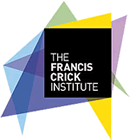About the Project
This 4-year PhD studentship is offered in Dr Leanne Li’s Group based at the Francis Crick Institute (the Crick).
Tumours are made up of both cancer cells and host cells that support the tumour’s growth. Interactions between the different types of cells in the tumour constantly shape the behaviour of the cancer cells, and affect how the disease will progress. This means we need to understand how cancer cells communicate with the host or ‘stromal’ cells within the area directly around the tumour, called the tumour microenvironment. But we also need to know how the tumour communicates with the rest of the body. The immune systems controls part of the conversation, and this piece of the system is relatively extensively-studied at the moment. However, the neuroscience aspects of cancer biology remain mostly unexplored.
The PhD project will develop around these key questions in the emerging field of cancer neuroscience: What are the roles of neuronal signalling pathways in cancer? Do cancer cells ‘communicate’ with our body through the nervous system, and if so, how? Finally, can we interfere with these ‘communications’ to treat cancer?
The PhD student will employ genetically-engineered mouse models (GEMMs) [1-3] and GEMM-derived tissue culture systems in conjunction with various cutting edge techniques to functionally interrogate the relationship between cancer cells and the nervous system. These techniques include CRISPR-mediated genetic editing, optogenetics [4], 3D organoid culture, co-culture, electrophysiology studies [5], neuronal tracing, advanced microscope imaging, etc.
Candidate background
This project would suit candidates holding with a background in cancer biology, neuroscience or related fields. I am looking for candidates who are highly-motivated to perform cutting-edge science using various tools to understand the basic cancer biology of how interactions between cancer cells and the environment impact tumour progression, especially via neuronal signalling pathways or direct innervations of tumours. The candidates are expected to have or to develop strong multitasking ability, capability to handle highly-dynamic projects. It is preferred that the candidates are experienced in molecular biology, cloning, cell culture, advanced imaging and mouse studies; however, even without these expertise, candidates who are excited to learn new techniques and eager to acquire novel skillsets are also welcome.
Talented and motivated students passionate about doing research are invited to apply for this PhD position. The successful applicant will join the Crick PhD Programme in September 2021 and will register for their PhD at one of the Crick partner universities (Imperial College London, King’s College London or UCL).
Applicants should hold or expect to gain a first/upper second-class honours degree or equivalent in a relevant subject and have appropriate research experience as part of, or outside of, a university degree course and/or a Masters degree in a relevant subject.
APPLICATIONS MUST BE MADE ONLINE VIA OUR WEBSITE https://www.crick.ac.uk/careers-and-study/students/phd-students BY 12:00 (NOON) 12 November 2020. APPLICATIONS WILL NOT BE ACCEPTED IN ANY OTHER FORMAT.
References
1. Li, L., Ng, S.R., Colon, C.I., Drapkin, B.J., Hsu, P.P., Li, Z., . . . Jacks, T. (2019)
Identification of DHODH as a therapeutic target in small cell lung cancer.
Science Translational Medicine 11: eaaw7852. PubMed abstract
2. Li, L., Zeng, Q., Bhutkar, A., Galvan, J.A., Karamitopoulou, E., Noordermeer, D., . . . Hanahan, D. (2018)
GKAP acts as a genetic modulator of NMDAR signaling to govern invasive tumor growth.
Cancer Cell 33: 736-751.e735. PubMed abstract
3. Li, L. and Hanahan, D. (2013)
Hijacking the neuronal NMDAR signaling circuit to promote tumor growth and invasion.
Cell 153: 86-100. PubMed abstract
4. Venkatesh, H.S., Morishita, W., Geraghty, A.C., Silverbush, D., Gillespie, S.M., Arzt, M., . . . Monje, M. (2019)
Electrical and synaptic integration of glioma into neural circuits.
Nature 573: 539-545. PubMed abstract
5. Robinson, H.P.C. and Li, L. (2017)
Autocrine, paracrine and necrotic NMDA receptor signalling in mouse pancreatic neuroendocrine tumour cells.
Open Biology 7: 170221. PubMed abstract

 Continue with Facebook
Continue with Facebook

